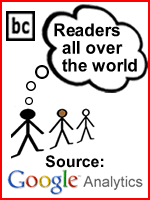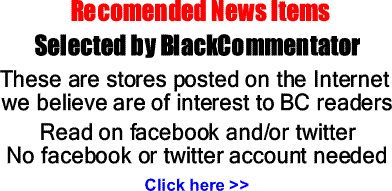| Have you heard the latest buzzword? It’s more akin to an allegation.  As
we bear witness to the Republicans vying for the opportunity
to face incumbent Barack Obama for the presidency, “The
Politics of Envy” has become the allegation placed against
anyone who might call a fact a fact or a truth a truth. As
we bear witness to the Republicans vying for the opportunity
to face incumbent Barack Obama for the presidency, “The
Politics of Envy” has become the allegation placed against
anyone who might call a fact a fact or a truth a truth.
The fact is that there is a grand inequality of wealth in this country. It is
also fact that many with great wealth have executed great
measures to prohibit others from the opportunity to gain
a part of this nation’s wealth. Another fact is that there
have been concerted efforts to deceive non-wealthy Americans
to think that ultra wealthy people have worked - just like
anyone else - to achieve that wealth; if anyone questions
that premise, they are accused of playing “the politics
of envy.”
It is disingenuous of any rich person who would categorically posit that anyone
that questions wealth gain is envious. Most Americans admire
people who have amassed great wealth (why, I’ll never know!).
The fact is that one generally questions wealth after the
wealthy person states that he/she has “earned it.” People
want to see what that looks like.
Most working class people want to emulate the formula that worked. Did they
save their dimes and skip meals to amass that kind of wealth?
Did they put half of their paycheck in money market accounts
and move in with their mother? What exactly did rich people
do to get rich?
When Republican primary candidate, Mitt Romney, gave his acceptance speech after
presumably winning the New Hampshire primary, Romney called President Barack
Obama, “a leader who divides us with the bitter politics
of envy.” Romney was referring to the president’s comments
about fairness and income inequality, the 1% versus 99%
argument. Rather than show any compassion on the subject,
the next day, Romney defended his “politics of envy” comment
on The Today Show.

“I think it’s fine to talk about those things in quiet rooms,” the former governor
said, “But the president has made it part of his campaign
rally. Everywhere he goes we hear him talking about millionaires
and billionaires and executives and Wall Street. It’s a
very envy-oriented, attack-oriented approach and I think
it will fail.” By “quiet rooms” does Romney mean boardrooms
and country clubs? Romney must understand that people talk
about greed of Wall Street and insane profits of corporations
in the face of ridiculously high unemployment and record
home foreclosures; and they’re talking about it loud and
in public - say, the Occupy Wall Street movement?
I find it virtually absurd to even consider registering my vote for someone
who cannot begin to see that a healthy economy is based
on consumer spending. When people within a society don’t
possess money to spend on goods and services, then an economy
becomes crippled. When one person makes $42.6 million in
the span of two years, I immediately think to myself the
number of working class salaries that could be! I think,
“how many $30,000/year salaries could that be?” Actually,
that’s 1,420 people that could be employed at a living wage!
That could help heal the American economy.
Because I see the inequality of that picture, doesn’t make me envious; it may
make me mad. Envy doesn’t even paint an accurate picture.
 So
why the phrase? It’s because the person in the superior
role must attack the victim to excuse his/her greed. Anger
at the fact that Romney pays a lesser tax rate than most
rich people, is reasonable if nothing else. Over two years, Romney’s effective tax rate - the percentage of his
income that he owed in federal income taxes - was just under
14%. So
why the phrase? It’s because the person in the superior
role must attack the victim to excuse his/her greed. Anger
at the fact that Romney pays a lesser tax rate than most
rich people, is reasonable if nothing else. Over two years, Romney’s effective tax rate - the percentage of his
income that he owed in federal income taxes - was just under
14%.
Nevertheless, and contrary to popular perception, Romney’s effective federal
income tax rate is still above that of many Americans -
80% of whom have an effective rate below 15%. That tax rate
is higher when other federal taxes - such as the payroll
tax - are included.
The reason Romney’s rate is so low - despite having one of the highest incomes
in the country - is because his income is derived almost
entirely from capital gains and dividends from his extensive
portfolio of investments. And that form of investment income
is typically taxed at just 15%, well below the 35% top tax
rate for high earners. It’s not envy that questions this
inequality, it’s anger. Or at least, it should be.
The main people that will vote for Romney will be low to middle income earners,
people who are unsure of their employment or mortgage. People
who are paying a higher percentage of their incomes on gas,
utilities and other necessities. These people will choose
to elect a person who cannot even begin to identify with
struggling to make a monthly budget or sacrificing to send
a child to college. Why would someone vote for that? Because,
racist loyalty will cause one to vote against his/her own
interest.

I beg you not to be that person. Don’t vote against your interests. A candidate
might look attractive, but realize that money has no friends.
From his years as a venture capitalist, Romney has shown
that money is more important than people. I bet you he has
more money than friends…to believe anything otherwise is
all but an illusion.
 BlackCommentator.com
Columnist, Perry
Redd, is the former Executive Director of
the workers rights advocacy, Sincere Seven, and author of
the on-line commentary, “The
Other Side of the Tracks.” He is the host of the internet-based
talk radio show, Socially Speaking in
Washington,
DC.
Click
here to contact Mr.
Redd. BlackCommentator.com
Columnist, Perry
Redd, is the former Executive Director of
the workers rights advocacy, Sincere Seven, and author of
the on-line commentary, “The
Other Side of the Tracks.” He is the host of the internet-based
talk radio show, Socially Speaking in
Washington,
DC.
Click
here to contact Mr.
Redd.
|

